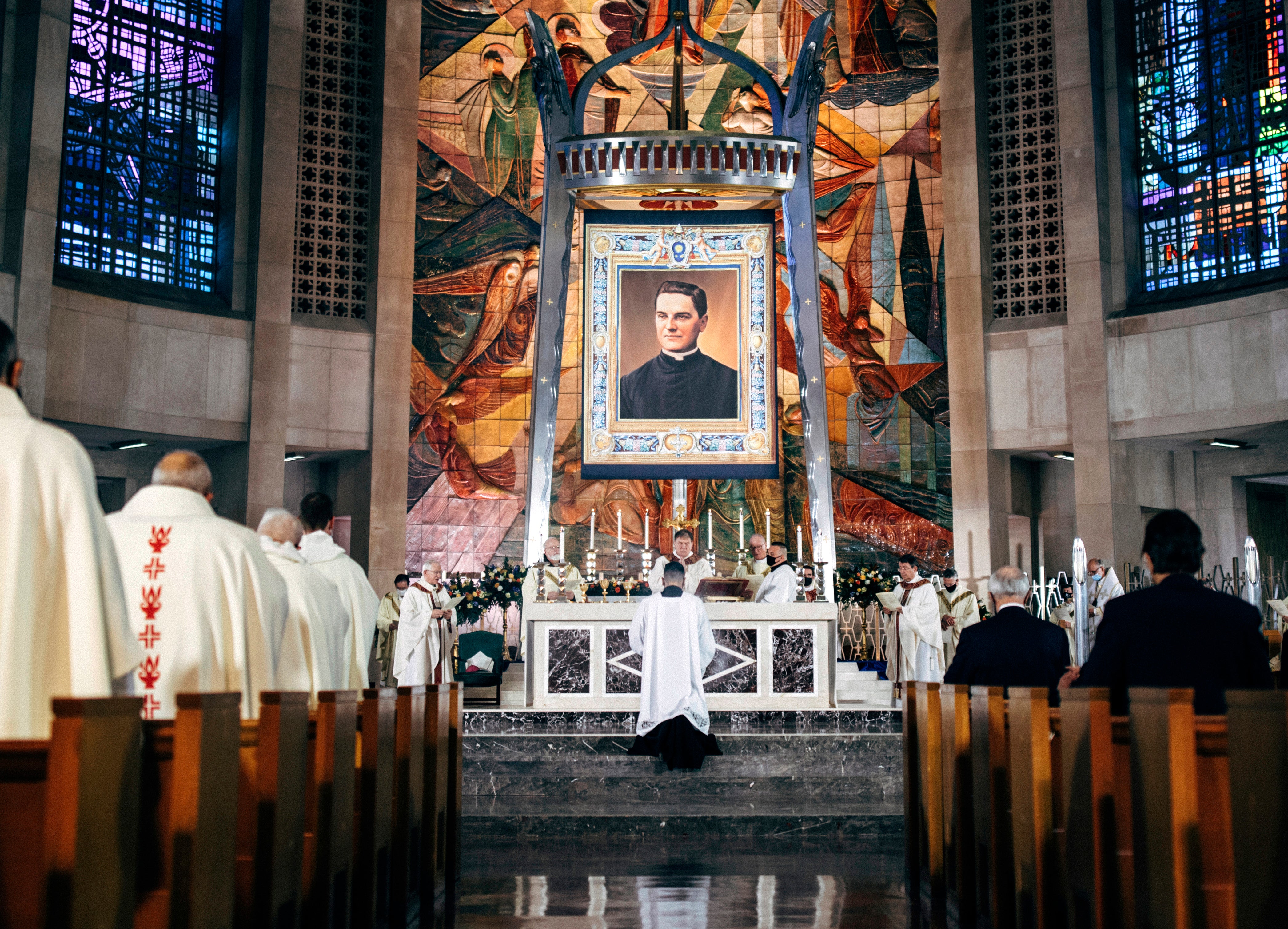
The Catholic Church is reportedly investigating a potential miracle that occurred at a church in Connecticut.
The supposed miracle took place at St Thomas Church in Thomaston, Connecticut, according to the Hartford Courant.
The Revered Joseph Crowley, who heads St Maximilian Kolbe Parish, which includes St Thomas Church, reported that the wafers distributed during the observation of communion multiplied while sitting inside the ciborium.
“God duplicated himself in the ciborium,” Rev Crowley said after communion, referencing the metal storage containers used to house the communion wafers. “God provides and it’s strange how God does that. And that happened.”
In response, the Archdiocese of Hartford began an investigation to determine whether or not a miracle had occurred at the church.
Since then, the Vatican's Dicastery for the Doctrine of Faith, a group dating back to the 1500's tasked with promoting and defending the Catholic faith throughout the world, has been notified and has begun its own investigation.
A spokesman for the archdiocese, David Elliott, issued a statement to the Hartford Courant saying that “reports such as the alleged miracle in Thomaston require referral to the Dicastery for the Doctrine of the Faith in Rome. The Archdiocese has proceeded accordingly, and will await a response in due time.”
Miracles are an important part of the process of becoming a saint within the Catholic Church. Sainthood considerations typically begin five years after the death of an exceptional Catholic.
A number of criteria must be met, including "verified miracles" — Vatican officials must determine that the miracles are a direct result of an individual praying to the candidate saint. They must come to the decision that the miracle was a result of the dead potential saint interceding between the petitioner and God, causing the miracle.
The Catholic Church defines a miracle as a "sign of wonder such as a healing, or control of nature, which can only be attributed to divine power."
While duplicating thin bread wafers may seem like a minor use of divine power to those unfamiliar with Catholic theology, the Eucharist — often called communion or the lord's supper — is arguably the holiest and most important sacrament — or ritual — in the faith.
Catholics typically believe in the idea of transubstantiation, or the idea that the bread and wine given during the ritual literally become the body and blood of Jesus Christ upon consecration, as opposed to simply symbols of his presence.
Michael O'Neil, who goes by the moniker Miracle Hunter, authored a book called Science and the Miraculous: How the Church Investigates the Supernatural, spoke to the Hartford Courant and gave examples of previous eucharistic miracles.
“There are various types of eucharistic miracles, but the ones that are most remarkable, in my opinion, were on some rare occasions, the host is said to bleed human blood,” he said.

Reverend Michael McGivney, the founder of the Knights of Columbus, ended his clerical career at St Thomas, where the alleged communion miracle took place. He has been in consideration for sainthood and requires one more verified miracle before he moves on to final consideration for sainthood within the Catholic Church.
Archbishop Leonard Blair explained to the Hartford Courant that “what has been reported to have occurred at our parish church in Thomaston, of which Blessed Michael McGivney was once pastor, if verified, would constitute a sign or wonder that can only be attributed to divine power to strengthen our faith in the daily miracle of the Most Holy Eucharist. It would also be a source of blessing from Heaven for the effort that the US Bishops are making to renew and deepen the faith and practice of our Catholic people with regard to this great Sacrament.”
"Blessed" is a title given to saint candidates who have had "verified" miracles attributed to them by the Vatican.







